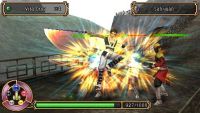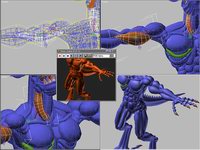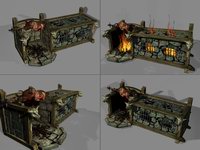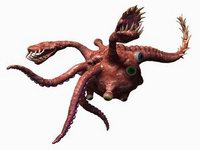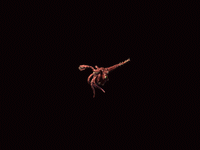|
|
|
Main News Forums Games Games Database Top 100 Release List Support Files Features Reviews Previews Interviews Editorials Diaries Misc Download Gallery Music Screenshots Videos Miscellaneous Staff Members Privacy Statement |
The Making of Divinity Moriendor, 2001-07-26
To get the ball rolling we talked to both Swen (a.k.a. Lars) - Producer, and Dirk De Boeck (a.k.a. Dante) Lead Story Programmer, both from Larian Studios, for their take on the making of Divine Divinity. HOW DID THE IDEA COME ABOUT? A small team started working on Divine Divinity (formerly known as Project C and later Divinity, The Sword of Lies). That was in the beginning of 1999. Then, somewhere in the summer of 1999, the entire team jumped on it. We started out making an RPG engine and once we had the core for that, we set out the course for Divinity. We want to make a role playing game which is very immersive, easy to get in, easy to control, but which offers you a large variety of options. Above all of course, it has to be fun. Another goal is, that we want to create a lasting universe, one to which players will be attracted, and one that will expand extensively. An automatic implication of this is that Divine Divinity is playable in both the hack 'n slash and the traditional hardcore RPG way. WHAT WAS THE INSPIRATION BEHIND DIVINITY? Biggest inspiration for us all were RPG pioneer games like Daggerfall - The Elder Scrolls and the Ultima series. Several of our team members being tabletop RPG players we were looking for an even better CRPG game play experience we could nowhere find... hence, why not making it ourselves? On the other hand, we do not want players to spend hours of time looking for clues, so we made a game for the "MTV generation": a fast paced story, filled with action. We felt that this is the right choice, when we played games like Diablo which is very hero centered, and where strength and skill development of the player character is primordial. Conclusion: intensive gameplay because we make a subtle mix of the best the existing CRPG world has to offer and because we add elements to it that make the Divinity world more real: improved interactivity with the world, better fighting AI, genuine reactions of people you encounter. SINCE WE ARE INTERESTED IN THE MAKING OF DIVINITY, LETS LOOK AT CERTAIN ASPECTS. FOR EXAMPLE, YOU CREATED A GAME WITH THE GRAPHICS RESOLUTION HIGHER THAN ANY OTHER RPG GAME. WHAT WENT INTO THAT? Several reasons apply when not going for the higher resolutions. Most important ones: games using fixed perspective and pre-rendered animations require a powerful PC if you want to get 40 fps (frames per second) in 1024x768, especially if the creatures are big and a lot of magic effects can splatter across your screen. So, if you want to target a broad public you are usually forced to go back to 800x600. We solved this by allowing the game to be run in 3 resolutions: 640x480, 800x600 and 1024x768, at the cost of extra work for graphics (all user interface plates like the character selection screen, the diary screen, etc...) need to be made in 3 versions, each tailored one of the resolutions, scripted scenes that happen in game need to fit the 3 screen sizes and a difficult exercise arises when dealing with the range of sight of the player character: the player is always in the middle of the screen and we cover the parts of the screen that are outside his seeing range. Now, if you take the 640x480 screen defining the seeing limit, a big part of your screen will be black when playing in 1024x768, if doing it the other way around, the player can see a lot of things that cannot be shown on screen. We solve a big part of this by overlaying a minimap, which shows the important things that fall outside the 640x480 screen and that still can be seen by the player. Last reason why to support 1024x748 is that a game of this type running this resolution can be appreciated well only on 19" screens and above, and such screens are becoming more commonly available in everyone's PC budget only since recently. Thanks chaps for explaining that. More from the boys next week :) So you see that the pedigree and motivation is there, as well as the technological know how. But going back to the Making Of Divinity, in terms of the intricate characters and world, every single character and backdrop in the World of Divine Divinity has been scaled and modelled in 3D to perfection before they are incorporated into the game. Don't believe me? Check out the new exclusive screenshots on the development and 3D modelling of characters. Of course the development process is far more complicated, but at least you'll get an idea of just how extreme and serious Larian Studios are in bringing the World an exceptional RPG videogame.
In the past RPG videogames always had nice backdrops that are good to look at but not in any way interactive. Over the years developers have followed this rule and gamers just grew to accept it. "So what if I can't take the shiny crystal in the corner? I'll just play along on this linear quest...etc." Larian Studios don't believe this to be the future for RPG's, in fact to hell with the rule book.....wouldn't it be cool for once if an RPG was truly interactive? Stop wishing and start believing.....click on the link below to view Larian's perspective on just how interactive an RPG should be. http://www.larian.com/Site/english/divinity/special_01.html
Average Reader Ratings: 7.96 (227 votes) |
||||||||||||||||||
|
All original content of this site is copyrighted by RPGWatch. Copying or reproducing of any part of this site is strictly prohibited. Taking anything from this site without authorisation will be considered stealing and we'll be forced to visit you and jump on your legs until you give it back. |
||




